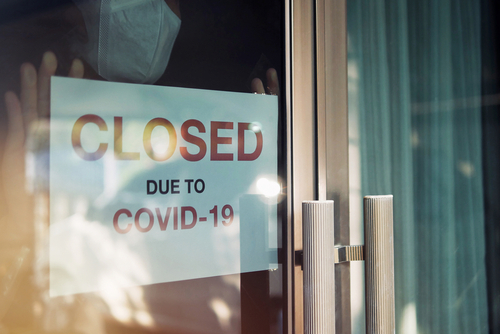Coronavirus: risk, uncertainty, and the supply chain

Uncertainty has dogged the construction supply chain, almost relentlessly, over the last decade.
More recently, the Brexit vote of 2016, then the collapse of Carillion, followed by the ‘beast from the east’ and Brexit again have provided ample cause for concern in UK business.
Now, another source of uncertainty is upon us: the coronavirus, officially named COVID-19.
As I write this post, the virus has infected over 70,000 globally and killed just under 2,000, the overwhelming majority of which have been in China.
Experience tells us the consequences of a global pandemic are hard to predict.
As a result, China has closed many of its cities and effectively quarantined around 50 million people while shutting down all factories deemed ‘non-essential’. An estimated 70 per cent of the global supply chain of raw materials is controlled by China – meaning the impact of the virus will be keenly felt by millions of businesses around the globe.
Is it different this time?
Experience tells us the consequences of a global pandemic are hard to predict. The 2003 SARS outbreak, the MERS outbreak of 2012 and the Ebola virus outbreak of 2014 all sparked similar fears for businesses worldwide, but these ultimately did not come to pass.
This coronavirus may turn out to be an altogether different adversary – the integration of supply chains and the increased globalisation of the last decade mean that it is easier now than at any other point in human history for a virus like COVID-19 to propagate.
However, in the construction supply chain, there is one constant which remains unchanged whenever a pandemic strikes: the legal risk-holder for any resultant business disruption.
Who holds the risk?
A “force majeure”, from the French “superior force” (read: ‘Act of God’) describes circumstances outside of the control of either party in a contract which prevents work from proceeding.
...in English law, force majeure has no recognised meaning
However, in English law, force majeure has no recognised meaning. A clause stating that the parties agreed that if performance is disrupted or prevented by force majeure, the parties right and remedies shall be as follows…” will almost certainly be held void for uncertainty unless the term is defined elsewhere within the document.
Know the details
Clause 2.26.14 of the JCT contract suite, which many in our industry will be familiar with, cites force majeure as constituting a Relevant Event (presumably intentionally) without defining what force majeure actually includes.
Relevant Events entitle the contractor to an extension of time and (which under clause 8.11.1) also entitles either party to terminate the contract, but force majeure is not a Relevant Matter and therefore gives no entitlement for the contractor to losses and expenses as a result of disruption caused by the force majeure event (as with exceptionally adverse weather – which also allows the contractor extra time as a Relevant Event, but not extra money as it is not a Relevant Matter).
Good legal drafting should provide a resolution for any such issue
The downside to the lack of definition for force majeure is that the party seeking to rely on it must prove that works have experienced an unexpected and exceptional event that allows one party to terminate or claim under the contract without being liable for damages, i.e. an unexpected and disruptive event that may operate to excuse a party from its obligations under a contract.
Under NEC, clause 60.1(19) equally allows the contractor to claim a compensation event where; (1) it stops the Contractor from completing the works, or stops the Contractor from completing the works by the date shown on the Accepted Program, (2) neither Party could prevent it and (3) an experienced Contractor would have judged it at the Contract Date to have such a small chance of occurring that it would have been unreasonable for him to have allowed for it.
This allows the contractor to claim both time and money and gives rise to an event of termination under clause 91.7. With such significant consequences, clearly caution must be exercised in interpreting the provisions of clause 19.
Prevention is better than cure
Given the global nature of commercial business, parties should always consider how unpredictable (and uncontrollable) problems, such as COVID-19, will be dealt with in their contracts.
Good legal drafting should provide a resolution for any such issue and this should now include unknown viruses, or more particularly, ‘Biological Contamination’.
ECA provides up-to-date and comprehensive legal advice to its members. To find out more, visit the ECA C&C website.
Are you up to date with ECAtoday?
ECAtoday is the official online magazine of ECA and reaches thousands of people within the electrotechnical and engineering services industry.






























